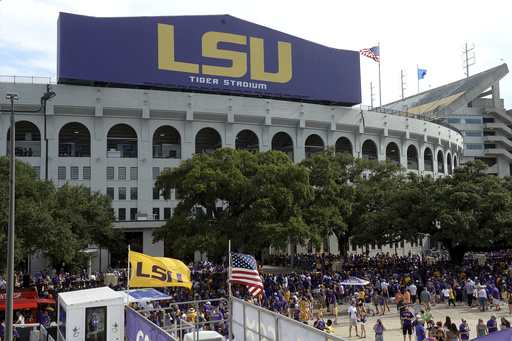
BATON ROUGE, La. — A Louisiana judge has instructed Louisiana State University (LSU) to reinstate a professor who was dismissed from his teaching role after he used crude language to express his views on Governor Jeff Landry and former President Donald Trump during a class session. The decision enables tenured law professor Ken Levy to resume teaching this week, following a hearing pertaining to a lawsuit he filed against the university.
During the two-day hearing, several law students and faculty members testified about the negative impact Levy’s dismissal had on their willingness to express their opinions freely in class. Levy remarked outside the courtroom that his victory was also a win for his colleagues and students, who would have felt vulnerable had he lost his case.
The controversy originated from a complaint lodged anonymously by a student after Levy’s statements during the initial session of a criminal justice class held in January. A transcript introduced in court indicated that Levy had made a comment using vulgar language directed at the governor and had stated he could impose penalties on students who recorded the lecture. Levy contended that his remarks were intended humorously, and many students confirmed this understanding when called to testify. He also expressed his disbelief regarding Trump’s election victory using similar vulgarity.
Shortly after the incident, the university administration communicated to Levy that he would be suspended from teaching while an investigation into the complaints was undertaken. Levy’s legal representative, Jill Craft, claimed that his removal infringed upon his academic freedoms and due process rights. Conversely, Jimmy Faircloth, representing the university, argued that preliminary findings indicated Levy fostered a potentially hostile environment for students who may not share his political beliefs, calling the lawsuit premature since the investigation was still active.
During the ruling, 19th Judicial District Judge Tarvald Smith stated that he found no fault with Levy’s use of explicit language within the context provided, asserting that critical commentary about politicians is commonplace. He also expressed a desire for LSU to encourage open debates and discussions that would prepare law students for diverse viewpoints they would encounter in their legal careers. Smith urged the university to allow their professors the freedom to teach without fear.
Throughout the proceedings, Governor Landry was frequently mentioned, particularly due to his alignment with Trump and his aggressive conservative policies since taking office last year. He has been in the spotlight for initiatives such as mandating the display of the Ten Commandments in classrooms and reinforcing severe immigration laws. In the past, Landry advocated for disciplinary action against another professor at LSU who openly criticized Trump. Levy cited this scenario as a rationale for his strict no-recording policy during lectures.
In response to Landry’s comments condemning his actions, Levy claimed he received multiple death threats, illustrating the personal toll of the situation. Landry’s office did not provide comments on this matter. Amid speculation about any external influence in Levy’s suspension, Faircloth rejected these claims, labeling them as unfounded conspiracy theories devoid of political reasoning.
University President William Tate IV noted during his testimony that he independently made the choice to relieve Levy of his duties and had not discussed the situation with the governor. After reviewing the content of Levy’s statements, he believed that the overall context surpassed acceptable classroom conduct.
Concerns linger among faculty members and students regarding potential repercussions for discussing controversial subjects, particularly those in opposition to the views of elected officials. Professor Patrick Martin IV, who teaches jurisprudence, articulated his apprehension about speaking on Louisiana’s contentious new law regarding the Ten Commandments and openly questioned whether he might face suspension as a consequence. “That’s a real fear,” he shared in court, encapsulating a broader concern for academic freedom within the university environment.

